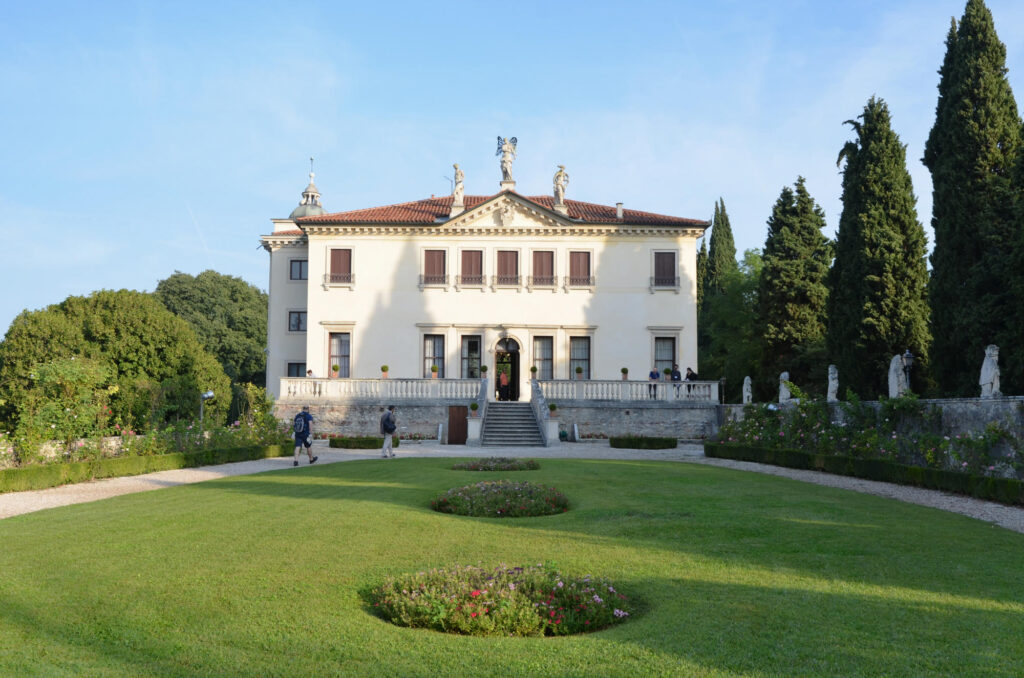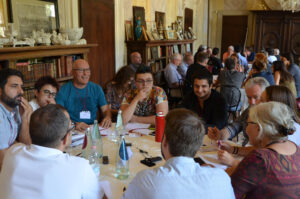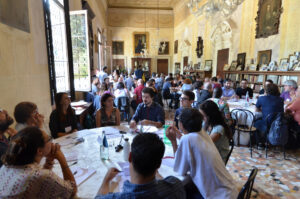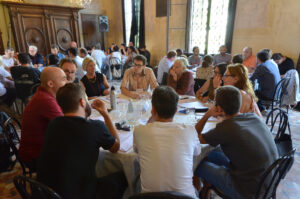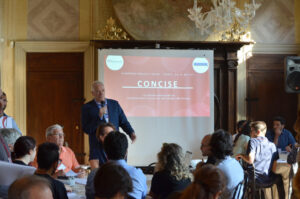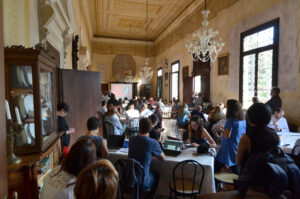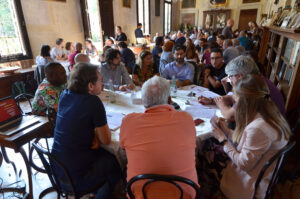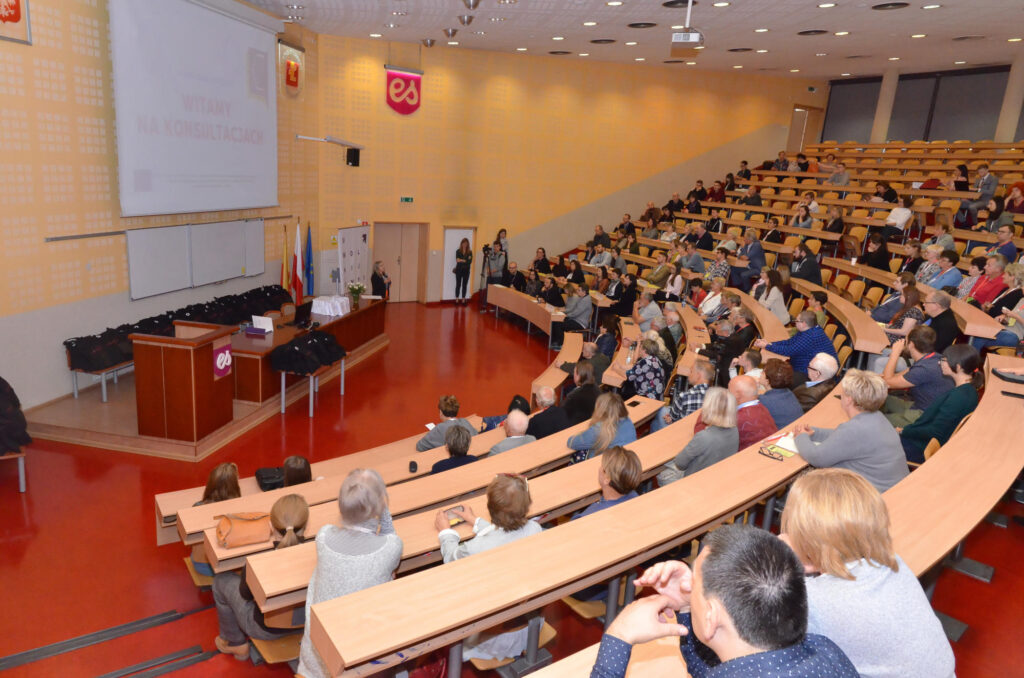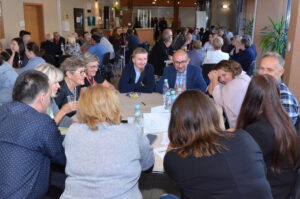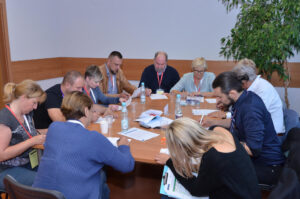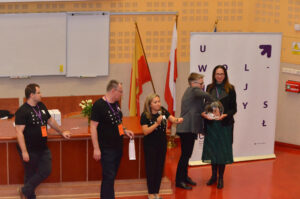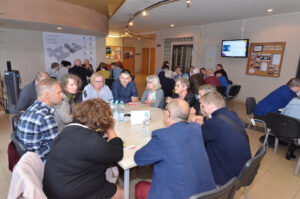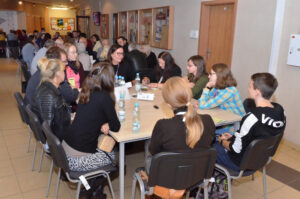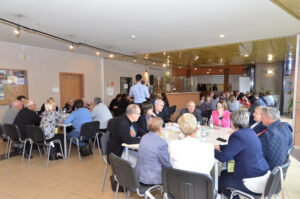September has been an exciting and busy month for the CONCISE Consortium. We have already held two citizen consultations in Italy and Poland, and we could not be happier with the outcome. Having learned some lessons, we are ready to meet Slovak and Spanish citizens this month!
Italian citizen consultation
On September 14, 100 people from all over Italy travelled to Vicenza, a beautiful city in north-eastern Italy. Our partner Observa Science in Society had it all set for the public consultation to take place. The event was held at Villa Valmarana ai Nani, a charming 18th century Villa in the outskirts of the city.
100 participant citizens had been selected to represent the diversity of Italian population in terms of age, gender, origin and educational backgrounds. Many travelled from their hometowns on Friday and spent the night in a local hotel. Early on Saturday morning, a shuttle bus carried the participants to the Villa. Following registration, citizens sat in roundtable groups of 8-10 people. Prof. Giuseppe Pellegrini welcomed them on behalf of Observa and the CONCISE project, and thanked them for their willingness to take part as volunteers. He introduced the project and agenda for the day, followed by tips to understand the dynamics of the encounter. Each person was to participate in four discussions (vaccines, climate change, complementary and alternative medicine, genetically modified organisms)) throughout the day. Besides the citizens, discussion tables comprised moderators to guide the discussions, and observers. Observers mission was to take notes for helping the transcription work. Between discussions, participants had time to rest, eat and get to know each other. The working day ended at 6 pm with an aperitif for participants and the Observa Science in Society collaborators (staff, facilitator, moderators, observers) who made the consultation possible.
The Italian consultation attracted the attention of media: – video by TvA Vicenza
– Newspaper article by Giornale de Vicenza.
Grazie mille, Italy!
Polish citizen consultation
On September 21, 100 people from all over Poland met in Łódź, a city located in the central part of the country. Our partner University of Łódź held the encounter at the Faculty of Economics and Sociology.
100 participants had been carefully selected among nearly 150 Polish citizens who had offered to take part in our study. The sample represented the diversity of Polish population in terms of age, gender, origin and educational levels. Early on Saturday morning, Prof. Izabela Warwas welcomed the participants on behalf of University of Łódź and the CONCISE project. Prof. Warwas thanked them for their willingness to volunteer. Participants discussed:
– how they receive information about scientific issues,
– which channels they use and prefer
– how they evaluate the information in terms of trustworthiness
– how that affects their actions
– and what they think that could be done to improve communication.
The working day ended at 5 pm with a draw of sponsored gifts for the participants who made the consultation possible.
Dziękuję Ci, Poland!
Next steps
Following the Italian and Polish consultations, Slovakia and Spain will host their consultations in October, with events in Trnava and València, respectively. Portuguese citizens will be the last to take part in this study. In total, the project will gather the testimonies of 500 people, representing the 500 million Eropean citizens. Following the consultations, their opinions will be analysed with specialised software. This will identify markers that will later help science journalists and communicators, the political and scientific communities and the general public to communicate more effectively. Thus, avoiding misleading speeches that generate distrust and misunderstandings.
Stay tuned for more news from upcoming consultations:
Trnava, Slovakia – October 19
València, Spain – October 26
Lisbon, Portugal – November 16
Edurne Gaston (Asociación Española de Comunicación Científica)

